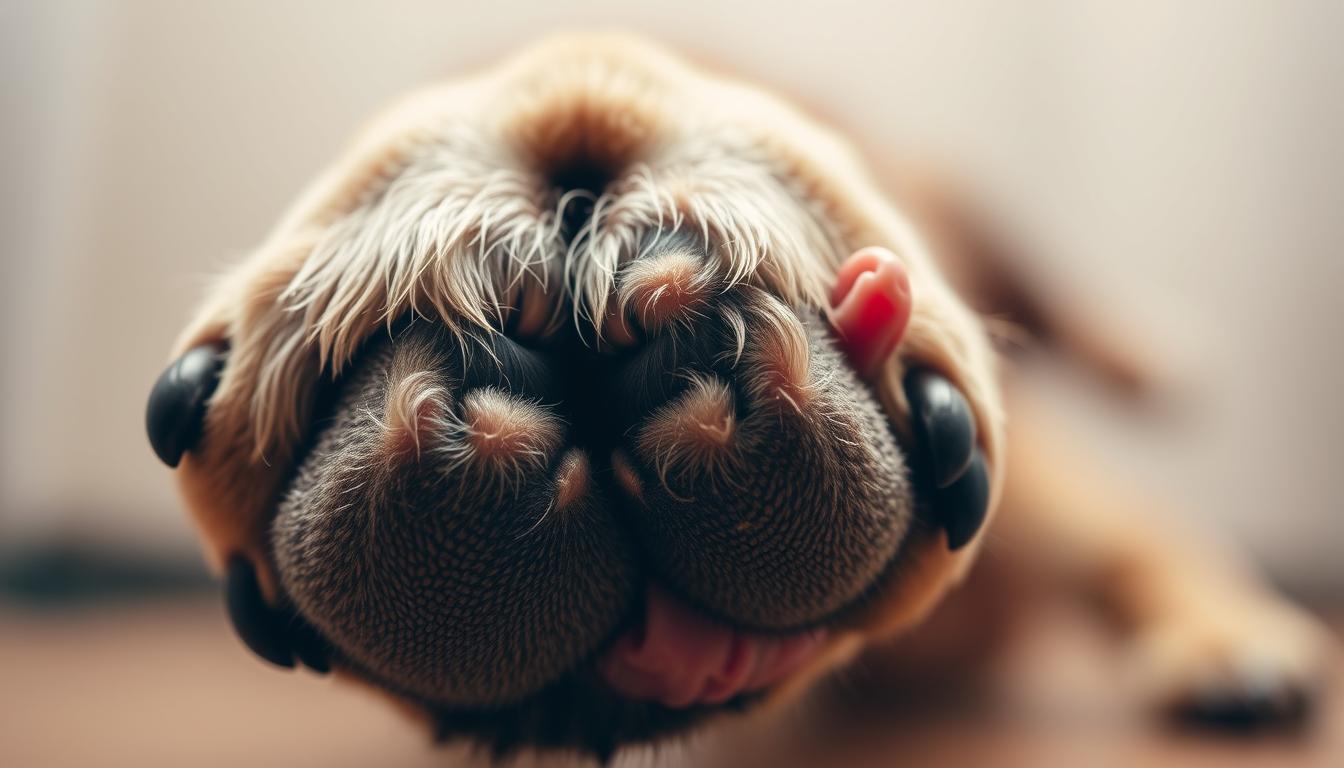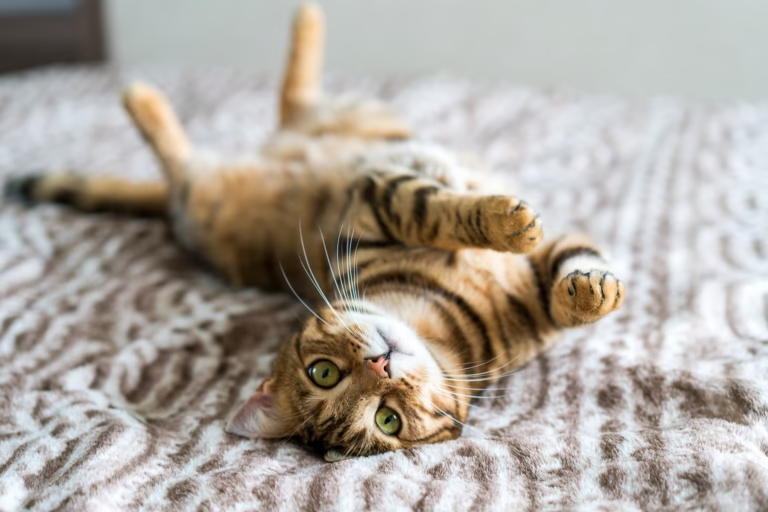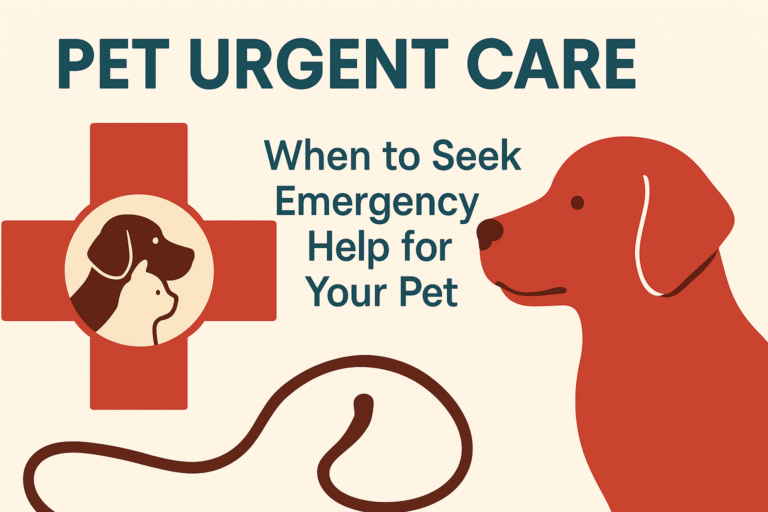why is my dog licking his paws
Dog owners often find themselves wondering about their pet’s behavior, especially when it comes to dog paw licking. This action is more common than you might think, and it can be caused by a variety of factors.
If you’ve noticed your dog engaging in excessive paw licking, you’re not alone. Many dog owners face this issue, and it’s essential to understand the underlying paw licking causes to address the problem effectively.
why is my dog licking his paws
This article will explore the reasons behind dog paw licking and provide guidance on how to manage and resolve the issue.
Key Takeaways
- Dog paw licking is a common behavior with multiple causes.
- Understanding the underlying causes is crucial to addressing the issue.
- Various factors contribute to paw licking, including health and environmental factors.
- Effective management and solutions are available to dog owners.
- Addressing dog paw licking requires a comprehensive approach.
Understanding Normal vs. Excessive Paw Licking
Paw licking is a common behavior in dogs, but it can be a sign of an underlying issue when taken to an extreme. Dogs naturally groom themselves by licking their paws to remove dirt and debris.
What’s Considered Normal Paw Licking Behavior
Normal paw licking is part of a dog’s grooming routine. It helps to remove dirt, reduce stress, and maintain paw health. Occasional paw licking is generally not a cause for concern.
Signs Your Dog’s Paw Licking Is Problematic
Excessive paw licking can indicate an underlying issue. To determine if your dog’s paw licking is problematic, consider the following:
- Frequency and duration of the licking
- Physical signs of irritation or injury
Frequency and Duration
If your dog is licking their paws persistently or obsessively, it may be a sign of a problem.
Physical Signs of Irritation
Check for redness, swelling, or discharge around the paw area. These signs can indicate an underlying issue that needs attention.
Why Is My Dog Licking His Paws? Common Medical Causes
When it comes to understanding why your dog is licking his paws, several medical causes come into play. Dogs often exhibit paw licking behavior due to underlying health issues that need to be addressed.
Allergies and Skin Irritations
Allergies are a common culprit behind paw licking in dogs. These allergies can manifest as skin irritations, leading to discomfort and the urge to lick.
Food Allergies
Food allergies occur when a dog’s immune system reacts to a particular ingredient in their diet. Common allergens include beef, dairy, and soy. Identifying and eliminating the allergenic food can help alleviate symptoms, including paw licking.
Contact Allergies
Contact allergies, on the other hand, are triggered by substances that come into direct contact with the dog’s skin, such as certain grasses, plants, or chemicals. Removing the allergen and applying topical treatments can help soothe the skin and reduce licking.
Injuries and Foreign Objects
Injuries to the paw, such as cuts or abrasions, can cause dogs to lick the affected area. Similarly, foreign objects like dirt, debris, or even a tick can irritate the paw, leading to licking.
| Cause | Symptoms | Action |
| Injuries | Pain, swelling, redness | Clean the wound, apply antibiotic ointment |
| Foreign Objects | Irritation, licking, chewing | Inspect the paw, remove the object |
Infections (Bacterial, Fungal, Yeast)
Infections can also cause paw licking. Bacterial, fungal, and yeast infections can lead to discomfort, redness, and a strong odor. Antibacterial or antifungal treatments may be necessary to clear up the infection.
Parasites and Pests
Parasites like fleas, ticks, and mites can cause significant discomfort, leading to paw licking. Using preventative measures such as flea and tick medication can help mitigate this issue.
Understanding the underlying medical cause of your dog’s paw licking is crucial for effective treatment. By identifying the root cause, you can take the necessary steps to alleviate your dog’s discomfort and prevent further complications.
Behavioral Reasons Behind Excessive Paw Licking
Behavioral factors such as anxiety, boredom, and stress can lead to excessive paw licking in dogs. It’s essential to understand that dogs often exhibit behaviors that are a response to their environment or emotional state.
Anxiety and Stress
Dogs, like humans, can suffer from anxiety and stress, which can manifest in various ways, including paw licking. This behavior can be a coping mechanism, providing temporary relief from their anxiety.
Separation Anxiety
One common form of anxiety in dogs is separation anxiety, where dogs become distressed when left alone. This anxiety can lead to behaviors like paw licking as a way to self-soothe.
Environmental Stressors
Environmental stressors, such as changes in the household, new pets, or even a new baby, can cause stress in dogs. This stress can trigger behaviors like excessive paw licking.
Boredom and Lack of Stimulation
Dogs need mental and physical stimulation. When they lack sufficient activity or engagement, they may resort to boredom-induced behaviors like paw licking.
Compulsive Behaviors and Habits
Sometimes, dogs develop compulsive behaviors or habits, such as paw licking, which can be challenging to break. These behaviors can be triggered by various factors, including anxiety or boredom.
Addressing these behavioral issues requires a comprehensive approach, including training, environmental changes, and sometimes, professional help.
Environmental Factors That Trigger Paw Licking
Understanding the environmental triggers is crucial to addressing why your dog is licking their paws. The environment your dog interacts with daily can significantly impact their behavior.
Seasonal Allergies and Pollen
Seasonal changes can bring about allergies due to increased pollen counts. Dogs may react to these allergens by licking their paws.
Household Chemicals and Irritants
Many household chemicals, such as cleaning products and pesticides, can irritate your dog’s skin, leading to paw licking. Choosing pet-friendly household products can help mitigate this issue.
Walking Surfaces and Terrain Issues
The surfaces your dog walks on can also contribute to paw licking. Issues related to walking surfaces include:
Winter Salt and Ice Melt Products
In winter, salt and ice melt products can irritate your dog’s paws, causing them to lick their paws to soothe the discomfort.
Hot Pavement and Rough Surfaces
During hot weather, pavement can become scorching, causing discomfort and leading to paw licking. Similarly, rough surfaces can cause irritation and injury.

environmental factors triggering paw licking
| Environmental Factor | Potential Impact on Dogs |
| Seasonal Allergies | Paw licking due to allergic reactions |
| Household Chemicals | Skin irritation and discomfort |
| Walking Surfaces (e.g., salt, hot pavement) | Irritation, injury, and discomfort |
How to Identify the Root Cause of Your Dog’s Paw Licking
To address your dog’s paw licking, it’s essential to understand the root cause of this behavior. Identifying the underlying issue is the first step towards finding an effective solution.
Physical Examination at Home
Conducting a physical examination at home can help you identify potential causes. Start by gently inspecting your dog’s paws.
What to Look For
Check for signs of injury, such as cuts or bruises, and look for any foreign objects lodged between the paw pads. Also, inspect for signs of skin irritation or infection, like redness, swelling, or discharge.
How to Check Between Paw Pads
Gently lift your dog’s paw and separate the paw pads to check for any debris or irritants. This area can be prone to accumulation of dirt, pebbles, or other small objects that might cause discomfort.
Tracking Patterns and Triggers
Keep a record of when the paw licking occurs. Is it after walks, during certain times of the day, or in response to specific events? Identifying patterns can help you pinpoint triggers.
When to Consult Your Veterinarian
If you notice persistent or severe paw licking, or if you identify signs of injury or infection during your examination, it’s crucial to consult your veterinarian. They can provide a professional diagnosis and recommend appropriate treatment.
Effective Solutions to Stop Paw Licking
Stopping paw licking requires a multi-faceted approach that includes medical treatments, behavioral changes, and environmental adjustments. Addressing the root cause is crucial to providing relief to your dog.
Medical Treatments for Different Causes
Depending on the underlying cause, various medical treatments can be employed. For allergies, antihistamines or steroids may be prescribed. If the cause is a bacterial or fungal infection, antibiotics or antifungal medications will be necessary.
Common Medical Treatments:
- Antihistamines for allergic reactions
- Antibiotics for bacterial infections
- Antifungal medications for fungal infections
- Steroids to reduce inflammation
Behavioral Modifications and Training
Behavioral issues such as anxiety, boredom, or compulsive behaviors can lead to paw licking. Training and behavioral modification can help alleviate these issues.
Effective Strategies:
- Increasing exercise and mental stimulation
- Training sessions to distract from licking
- Using positive reinforcement techniques
Environmental Changes and Preventative Measures
Changes in the environment can also play a significant role in reducing paw licking. This includes minimizing exposure to allergens and irritants.
| Environmental Factor | Preventative Measure |
| Seasonal Allergies | Regular paw cleaning, using allergy-friendly products |
| Household Chemicals | Using pet-safe cleaning products, keeping chemicals out of reach |
Home Remedies and Natural Solutions
Several home remedies can provide relief. Paw soaks and rinses can help soothe irritated paws, while protective gear like dog boots can prevent further irritation.
Paw Soaks and Rinses
Paw soaks can be made with Epsom salt or oatmeal to reduce inflammation and itching. Regular rinsing after walks can remove irritants.
Protective Gear and Barriers
Dog boots or bandages can protect paws from further irritation, especially during walks or in areas with potential irritants.
Conclusion
Understanding why your dog is licking his paws is crucial to providing the right care and relief. As discussed, dog paw licking can stem from various medical, behavioral, and environmental factors. Identifying the root cause is key to finding effective solutions.
By examining your dog’s overall health, behavior, and surroundings, you can narrow down the potential causes. Whether it’s allergies, anxiety, or irritation from household chemicals, knowing the trigger allows you to apply targeted solutions, from medical treatments to behavioral modifications and environmental changes.
Implementing these solutions can significantly improve your dog’s comfort and health. Regular grooming, using natural remedies, and adjusting your dog’s environment are practical steps you can take. If the issue persists, consulting with a veterinarian is essential to rule out underlying conditions that require professional attention.
Taking action to address dog paw licking not only enhances your dog’s well-being but also strengthens the bond between you and your pet. By being proactive, you can help your dog enjoy a healthier, happier life.
FAQ
Why is my dog licking his paws?
Your dog may be licking his paws due to various reasons, including allergies, skin irritations, injuries, infections, parasites, anxiety, stress, boredom, or compulsive behaviors.
What is considered normal paw licking behavior?
Dogs naturally lick their paws as part of their grooming routine. However, excessive licking can be a sign of an underlying issue.
How can I identify if my dog’s paw licking is problematic?
You can identify problematic paw licking by observing the frequency and duration of the behavior, as well as physical signs of irritation, such as redness, swelling, or discharge.
Can allergies cause paw licking in dogs?
Yes, allergies, including food allergies and contact allergies, can cause paw licking in dogs.
How can I stop my dog from licking his paws?
You can stop your dog from licking his paws by addressing the underlying cause, using medical treatments, behavioral modifications, environmental changes, and home remedies, such as paw soaks and rinses, and protective gear.
When should I consult a veterinarian about my dog’s paw licking?
You should consult a veterinarian if you notice persistent or severe paw licking, or if you are unsure about the underlying cause or how to address it.
Are there any home remedies to soothe my dog’s paws?
Yes, you can try home remedies, such as paw soaks and rinses, oatmeal baths, and applying topical creams or ointments to soothe your dog’s paws.
Can anxiety and stress cause paw licking in dogs?
Yes, anxiety and stress can contribute to paw licking in dogs, and addressing these underlying issues can help alleviate the behavior.
How can I prevent my dog from licking his paws?
You can prevent paw licking by maintaining good hygiene, using protective gear, and addressing underlying causes, such as allergies or anxiety.





